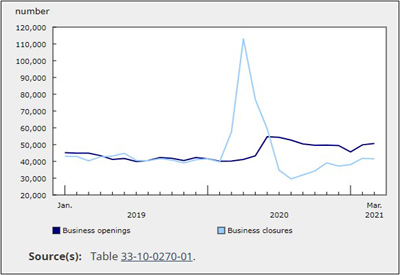2020: Powering Through, Together

Dec 10, 2020
By Michelle Branigan
If the events of this year have shown us anything, it’s that the Canadian electricity sector is resilient. As a sector providing an essential service 24/7/365, those who work in the sector have long had that “storm mentality” and are ready for extreme weather or other crisis scenarios. Most organizations have robust emergency plans in place, and some even have specific plans prepared for a pandemic (based on previous scares with SARS and H1N1).
However, nobody could have predicted the suddenness and ferocity of COVID-19, and every one of us has had to adapt to the new circumstances of life during a pandemic. Almost overnight companies were forced to change the way they work. Staff that could work remotely were sent home, and field personnel had to adapt to new layers of safety protocols in order to keep operations going. Parents had to struggle to work and teach their children at the same time, while many more worried about their parents or other family members deemed high risk.
As part of Electricity Human Resources Canada’s ongoing commitment to supporting the electricity sector during the pandemic, we have engaged regularly with employees and organizational leads to assess the impact of the pandemic on a range of issues, including but not limited to operations, remote working, mental health, morale and safety. Our latest report, Powering Through Together: Electricity Leadership on Navigating the Pandemic, in partnership with the Canadian Electricity Association (CEA), is the culmination of 48 in-depth surveys and interviews with senior management and executive-level respondents representing companies and unions across Canada. The report captured insights on working conditions during the pandemic, the impact of the pandemic on the sector’s workforce and operations, and areas of ongoing concern. It provides a number of recommendations for moving forward under current and future circumstances.
The report made clear that the sector’s strong culture of prioritizing the safety of its workforce has been critical in its response to the pandemic. The ability to adapt existing business continuity plans and respond quickly in the early days of the pandemic was an advantage in keeping workers safe and operations running, especially while public health guidelines were constantly changing.
Some of the key findings that emerged from the report included the following:
• The shift to remote work has underscored the importance of IT infrastructure in all areas of operations. It is critical that all organizations regularly review how their software and hardware is performing to achieve business goals. As one respondent said, “I never thought we could move 65% of our workforce remotely in a few days.”
• Mental health was a growing concern among employers and society in general, even before the pandemic. Employees including managers, supervisors and other leaders are all now under more pressure than ever and since the start of the pandemic there has been a greater focus on mental health and well-being supports. Employers must be tuned in to the needs of their employees and make sure that ample support is available if required.
• Return to work planning should be responsive and flexible, and based on the specific needs of each company. Engaging all levels of employees in planning how and if remote workers will move back into the office can help to increase buy-in and a sense of solidarity. Return-to-work plans should be unique to each organization, based on operational requirements, regional context, and public health guidelines.
• Clear, concise and frequent communication with employees is critical in order to ensure that they are kept abreast of the latest updates to health and safety protocols, but also to maintain company culture and ensure that employees feel like that “they are in it together.”
• Collaboration across the sector is an important method for ensuring overall resilience. The sector has a long tradition of knowledge sharing, and now more than ever we must continue to support each other through stakeholder discussions, regular calls and collaborative work.
Over the last 10 months, teams and leaders have prioritized worker health and safety and have powered communities, hospitals, and other areas of Canada’s economy. Regardless of whether you climb the poles, supply the equipment or deal directly with customers, you have helped keep the lights on across Canada.
With the latest news of a vaccine there is now light at the end of this long tunnel, but there is still a long road ahead. People are fatigued, sick of Zoom meetings, tired of fighting the kids for bandwidth, and anxious to get back to normality. Now more than ever it is important to support your employees, your colleagues and each other, and to start learning from all the things that were done right during the pandemic.
Michelle Branigan is CEO, Electricity Human Resources Canada.











